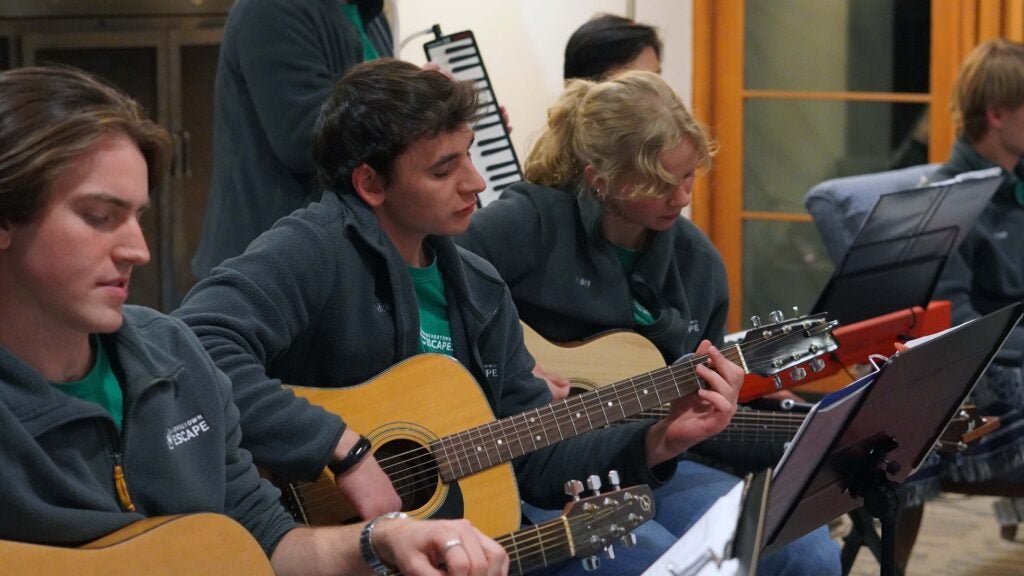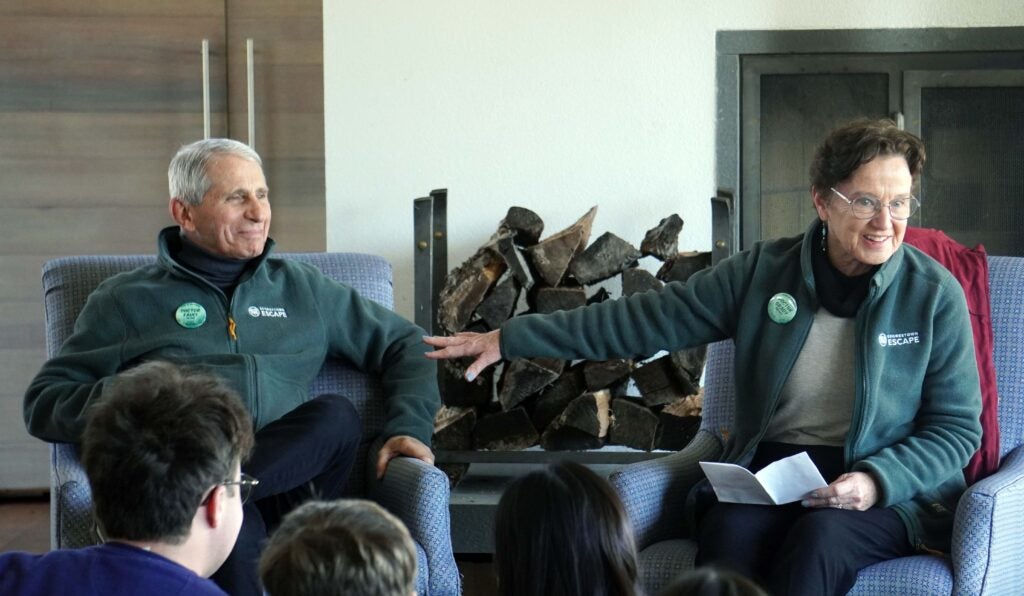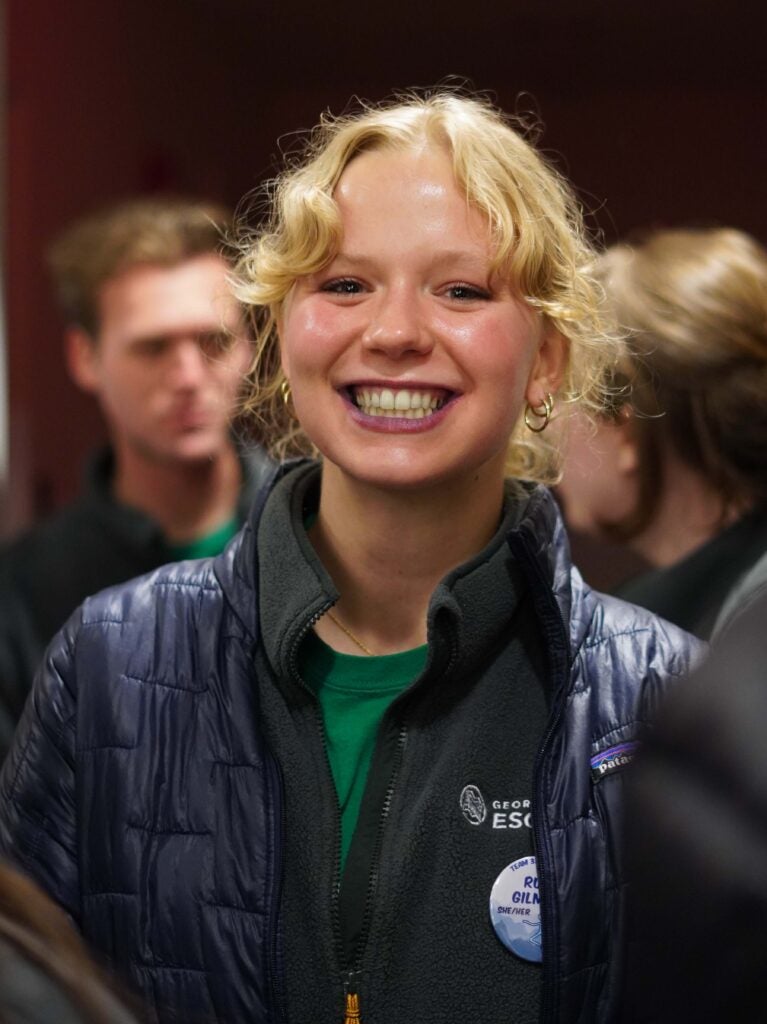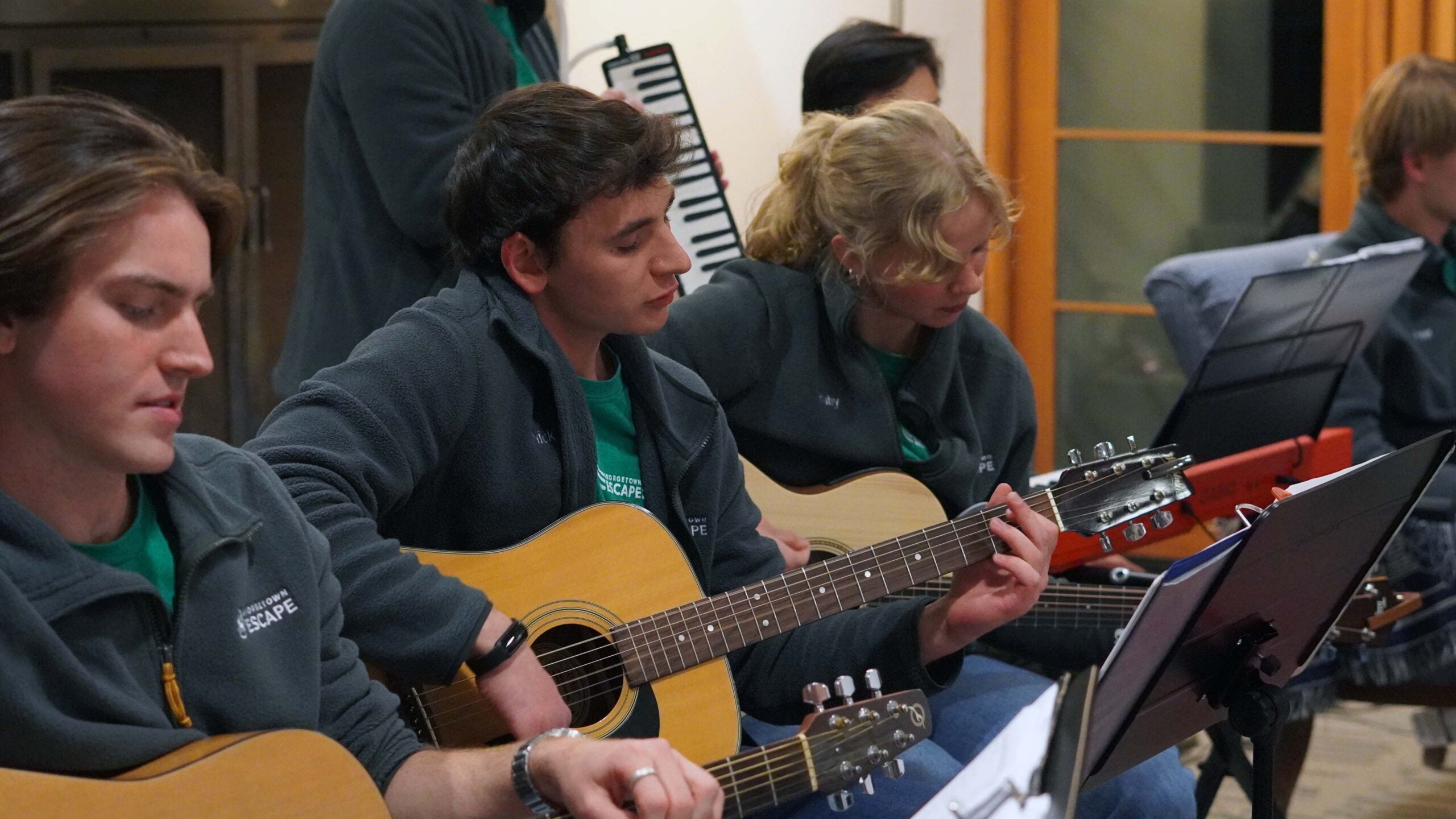Student Reflection: Learning to Lean into the Zig-Zags
By Ruby Gilmore (SFS’26)

(right to left) Ruby Gilmore (SFS’26) playing guitar with ESCAPE Student Musician, Nick Vianna, (C’25), and fellow ESCAPE team leader, Dylan Davis (C’26)
It was cold, even for March, and I found myself grateful for the thermal layers I’d packed the day before. Sitting on maroon and navy cushions in Arrupe, students buzzed around me with excitement for the unofficial “main event” of the weekend. Between the chill, the gray light filtering through the tall windows, and the stone-faced bodyguards with earpieces standing by the doors, I couldn’t help but feel myself swept away in that same excitement.
From the moment that Dr. Christine Grady (N’74, G’93) and Dr. Anthony Fauci began speaking, I knew that the high expectations for the weekend hadn’t been misplaced. They broke the ice almost immediately with a playful but professional banter that set the tone for the rest of their talks. With an audience eager to listen, they began.

Dr. Anthony Fauci and Dr. Christine Grady (N’74, G’93).
Dr. Grady went first, recounting medical school rejections, her time as a nurse in a rural, Brazilian community, her work with HIV/AIDS patients, and her current path as a pioneer in the field of bioethics. I was entranced by her long list of accomplishments, but also by the confidence, grace, and humility with which she described them. Her life had taken many turns—“zig-zags” she called them—and though these diversions from a preconceived path had not been easy, they brought her to places she never imagined, taught her valuable skills and lessons, and ultimately helped her find fulfillment.
Dr. Fauci followed his wife’s talk, telling a different but parallel story of evolving interests, difficult decision-making, and extensive change that comprised his path of many zig-zags. Life is not easy, he emphasized, and yet even in the face of tremendous sorrow, both he and Dr. Grady had found joy. How? The answer to this was clear: their anchor through each zig-zag—through the uncertainty, rejection, failure, and change—had been a lifelong desire to live their lives in the service of others.
There was not a single moment in either of their talks where I doubted that this was the case. As we transitioned into the Q&A section of the talks, students sought guidance on how to navigate the diverse range of challenges faced by young adults today. With every answer, I could feel the compassion that these two individuals held for the patients they served, for each other, and for every person in the room. They cared, and that care was contagious.

Ruby Gilmore (SFS’26)
By the end of the session, I found myself strangely emotional, a feeling similar to how I feel when I see friends after a stressful day or my parents after finals week. There was so much I wanted to ask these two individuals who seemed to have gotten it all so right. From their stories, I could tell that their paths hadn’t been easy, but they were still so full of humor, empathy, and joy.
Was the secret to a fulfilling life really as simple as service and compassion? Could someone’s internal compass really just be love? What do you do when you can’t see the next step forward? Will it all really turn out okay in the end? As all of these questions swirled in my head, I found myself hoping so. I found myself hoping that I, too, might tie myself to that anchor of service. And though I may not know which way my path will turn next, I hope that in a few decades, as I look back on my zigs and my zags, I, too, can be proud of the work I’ve done.
Ruby Gilmore (SFS’26) was an ESCAPE team leader, 2023-24. She is studying Science, Technology, and International Affairs with a minor in French.
Photos courtesy of ESCAPE.
